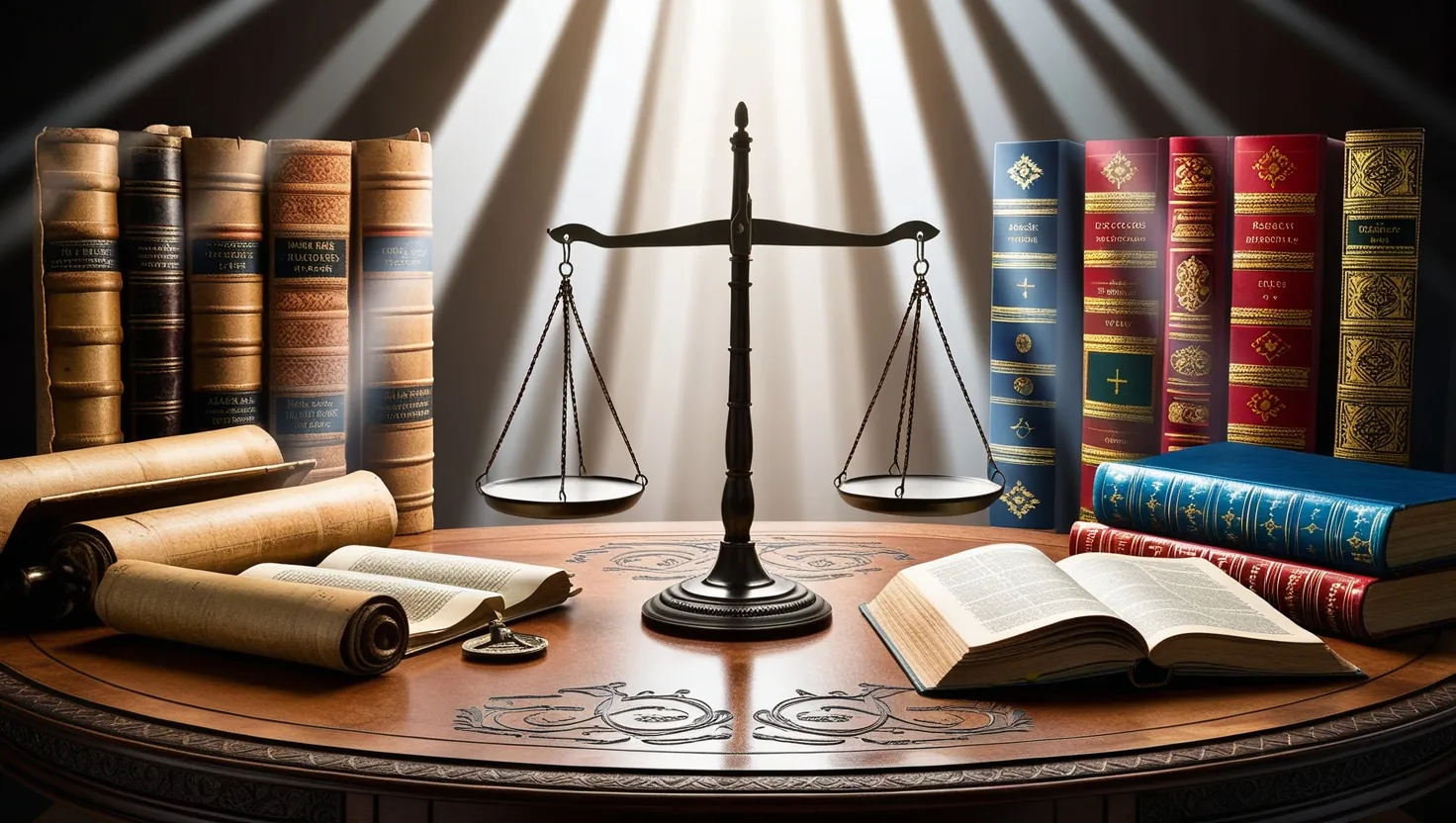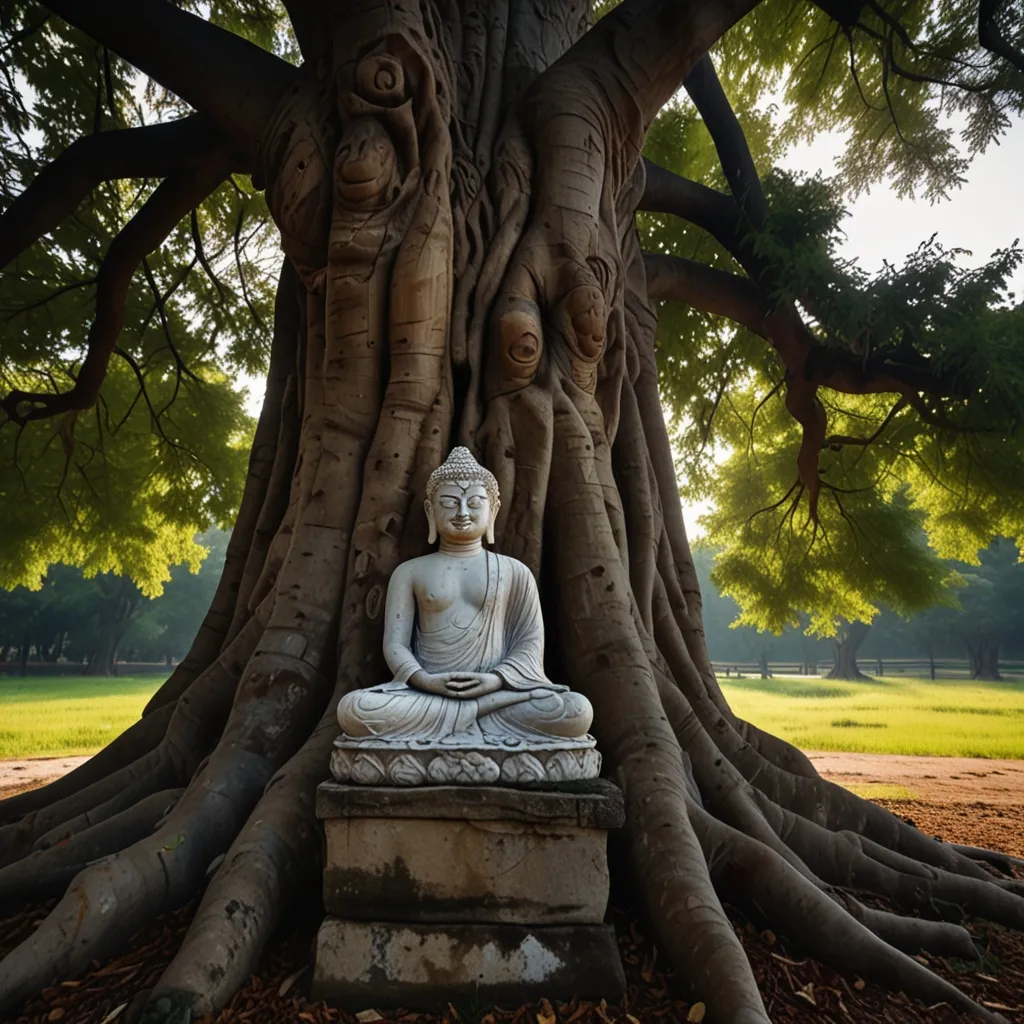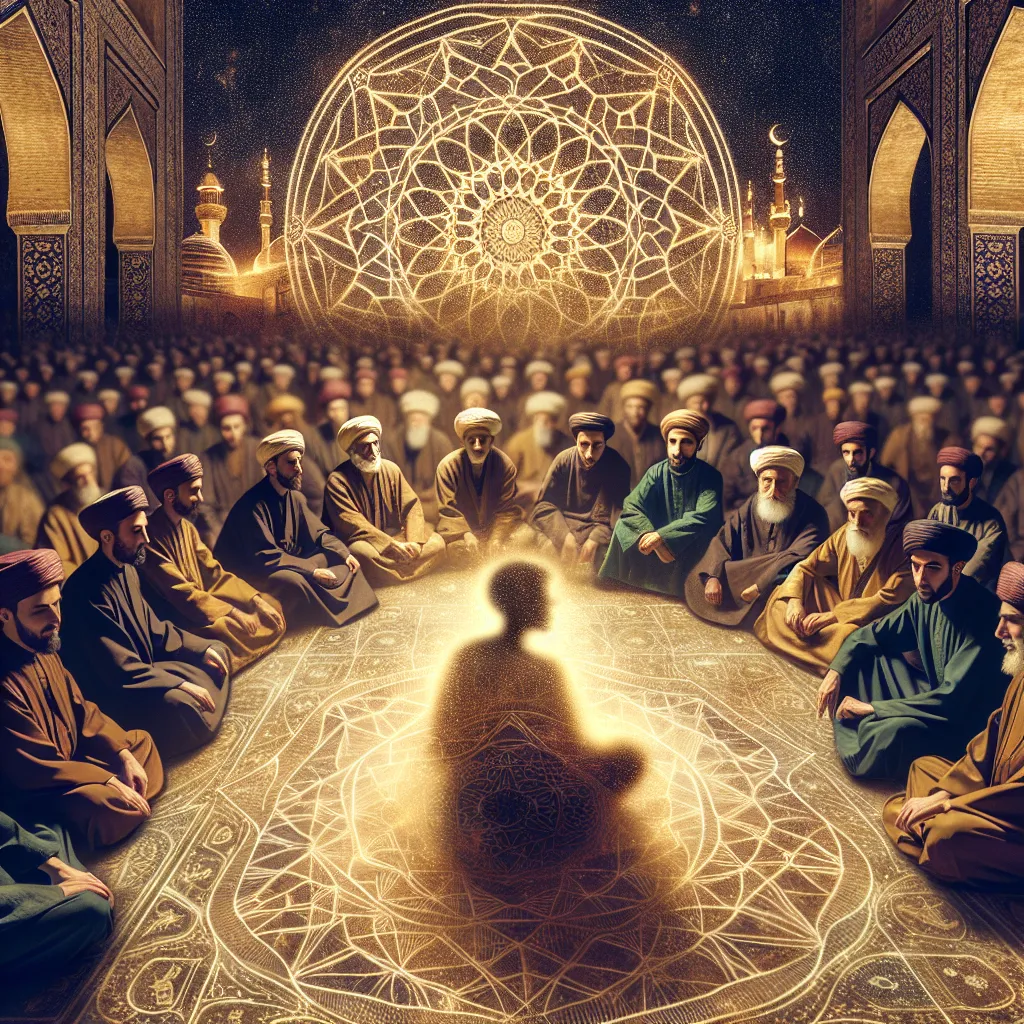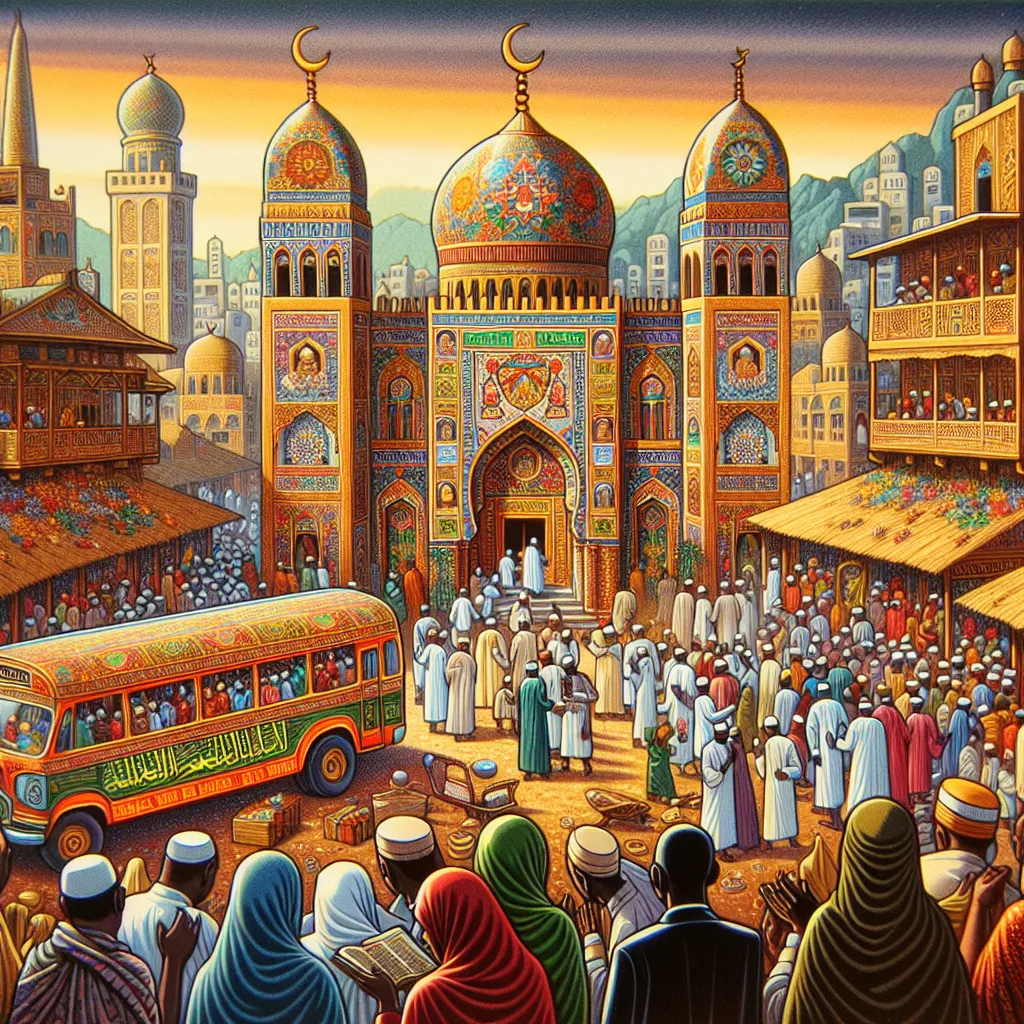Religious texts have profoundly shaped legal systems across cultures and centuries, weaving spiritual principles into the fabric of societal governance. While we often think of law as a purely secular domain, the truth is that many of our modern legal concepts have deep roots in ancient religious teachings.
Let’s start with the Torah, the foundational text of Judaism. This collection of writings established one of the earliest comprehensive legal codes, laying out detailed rules for everything from criminal justice to property rights. Its emphasis on proportional punishment - “an eye for an eye” - may seem harsh to modern ears, but it was actually a revolutionary concept at the time, replacing arbitrary penalties with measured justice. The Torah also introduced the radical idea that all people, even kings, were subject to the law.
“Justice, justice shall you pursue,” declares Deuteronomy 16:20. This simple yet powerful statement encapsulates the Torah’s vision of a society governed by fairness and moral principles rather than the whims of the powerful.
How might our justice systems look different today if this ethic of relentless pursuit of justice was more deeply embedded?
Moving westward, we find the profound influence of the Bible on Western legal traditions. While the separation of church and state is a cornerstone of many modern democracies, Christian interpretations of scripture played a major role in shaping legal philosophy across Europe and the Americas. Concepts like natural law theory, which posits that certain rights are inherent to human nature rather than granted by governments, have their roots in Biblical teachings.
The idea of human dignity and equality before the law also stems from the Christian belief that all humans are created in God’s image. This radical notion challenged hierarchical social structures and laid the groundwork for modern human rights frameworks.
“Let every person be subject to the governing authorities,” writes Paul in Romans 13:1. This verse has been used to justify obedience to secular law, while also implying limits on governmental authority.
Does this Biblical injunction support or undermine the concept of civil disobedience in the face of unjust laws?
In the Islamic world, the Quran and associated religious texts gave rise to sophisticated legal frameworks governing all aspects of life. Islamic law, or Sharia, provides detailed regulations on commerce, family matters, and governance. Its prohibitions on usury (charging interest) and gambling continue to influence financial systems globally, with Islamic banking offering alternatives to conventional lending practices.
The Quran’s emphasis on social justice and communal responsibility also shaped legal approaches to poverty and wealth distribution. The requirement of zakat, or charitable giving, became enshrined in many Islamic legal codes as a form of wealth tax.
“O you who have believed, be persistently standing firm in justice,” exhorts the Quran in 4:135. This call for unwavering commitment to justice echoes across Islamic legal traditions.
How might modern financial systems be different if Islamic principles of economic justice were more widely adopted?
Turning to East Asia, we find the profound influence of Confucian texts on governance and legal philosophy. Rather than emphasizing individual rights or punitive justice, Confucian thought prioritizes social harmony, hierarchy, and mediation. This approach continues to shape legal systems across Asia, with many countries favoring reconciliation and restorative justice over adversarial court proceedings.
Confucius taught that the ideal ruler governs through moral example rather than coercion, a principle that influenced concepts of legitimate authority throughout East Asian history.
“To govern by virtue, let us compare it to the North Star: it stays in its place, while the myriad stars wait upon it,” Confucius wrote. This poetic metaphor captures the Confucian ideal of leadership through moral authority.
In what ways might Western legal systems benefit from incorporating more Confucian principles of harmony and reconciliation?
In the Hindu tradition, the Dharmaśāstra texts codified complex legal principles addressing personal conduct, property rights, and social obligations. These writings explored nuanced concepts of debt - both financial and moral - that continue to influence legal thought in South Asia. The Dharmaśāstra also laid out detailed rules for inheritance and family law that shaped social structures for centuries.
Interestingly, Hindu legal texts recognized multiple valid sources of law, including custom and reason alongside religious scripture. This flexible approach allowed Hindu law to adapt to changing social conditions while maintaining core principles.
“Where there is righteousness (dharma), there is victory,” proclaims the Mahabharata. This sentiment reflects the Hindu view that adherence to moral law leads to both personal and societal success.
How might modern legal systems incorporate more flexibility while still maintaining core ethical principles?
Finally, we come to Buddhist texts, particularly the Vinaya, which established detailed governance systems for monastic communities. While primarily focused on religious life, these writings provided models for communal decision-making and conflict resolution that extended beyond monastery walls.
Buddhist legal thought emphasizes personal responsibility and the interconnectedness of all beings. This perspective influenced approaches to criminal justice in many Asian societies, focusing more on rehabilitation and restoring social harmony than on punishment alone.
“Hatred never ceases by hatred, but by love alone is healed. This is the ancient and eternal law,” teaches the Dhammapada. This principle of overcoming negativity with compassion has profound implications for how we approach justice and conflict resolution.
What would a criminal justice system built on Buddhist principles of compassion and interconnectedness look like?
As we’ve seen, religious texts have played a crucial role in shaping legal systems worldwide. From establishing basic principles of justice to providing detailed frameworks for governance, these writings demonstrate the profound connection between spiritual teachings and societal organization.
Of course, the relationship between religion and law is not without controversy. The application of religious principles in pluralistic societies raises challenging questions about whose values should be enshrined in law. Moreover, rigid interpretations of ancient texts can sometimes conflict with evolving notions of human rights and social justice.
Yet even as many modern legal systems move towards greater secularization, the ethical foundations laid by religious texts continue to exert a powerful influence. Concepts of human dignity, social responsibility, and the pursuit of justice that we now consider universal have deep roots in diverse spiritual traditions.
Perhaps the enduring legacy of these texts lies not in their specific rules, but in their vision of law as a tool for creating a more just and harmonious society. As we grapple with complex legal challenges in our globalized world, we would do well to draw wisdom from these ancient sources while adapting their teachings to our modern context.
What timeless principles from religious legal traditions do you think are most relevant to addressing contemporary societal challenges?






